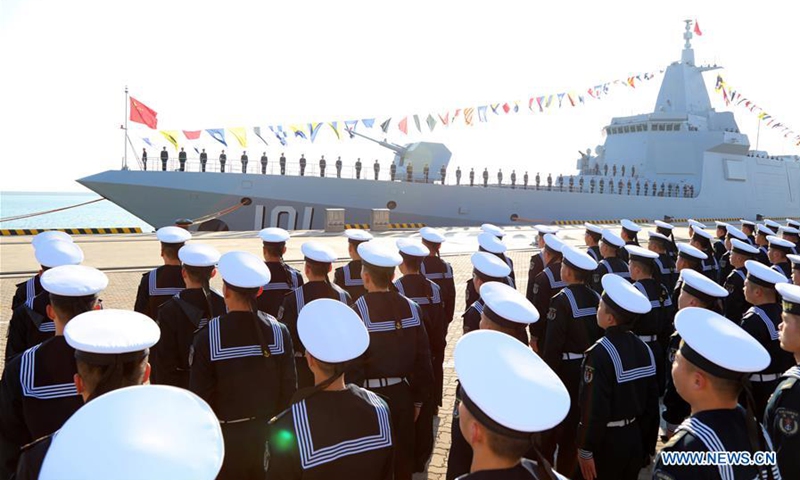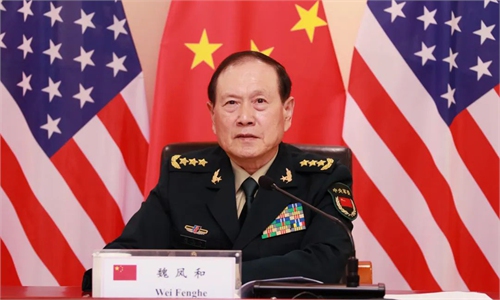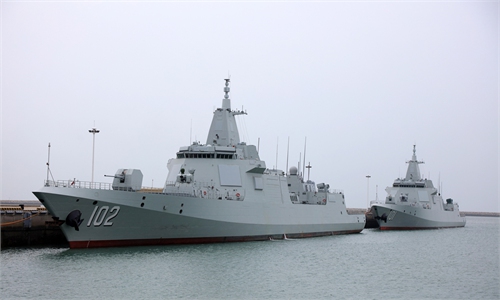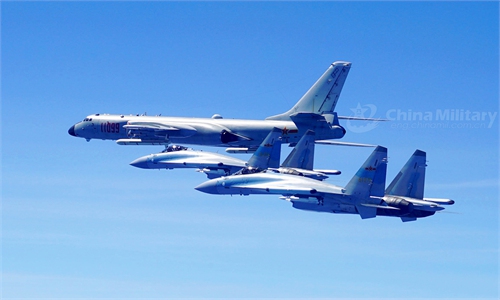Foreign media reports on China's ship-launched, air-launched anti-ship ballistic missiles 'merely speculative'

Photo taken on Jan. 12, 2020 shows the ceremony of the commissioning of the Nanchang, China's first Type 055 guided-missile destroyer, in the port city of Qingdao, east China's Shandong Province. The commission of Nanchang marks the Navy's leap from the third generation to the fourth generation of destroyers, according to a statement from the Navy. (Photo by Li Tang/Xinhua)
After commissioning the road-mobile DF-21D and DF-26 anti-ship ballistic missiles, the Chinese People's Liberation Army (PLA) also has ship- and air-launched variants of such hypersonic weapons in its arsenal that can keep US carrier strike groups at a distance, foreign media recently reported.
These reports are merely speculative, Chinese military experts said on Thursday, noting if China does have such weapons, they are defensive in nature and would provide greater deterrence and deeper maritime defense against hostile warships, and only those with evil intentions would fear them.
The PLA Navy has launched a YJ-21 hypersonic anti-ship missile from a Type 055 large destroyer, posing an even greater threat to US aircraft carriers than the DF-21 and DF-26 road-mobile anti-ship ballistic missiles, UK newspaper The Times reported on Thursday, citing video images that emerged online.
An H-6N bomber of the PLA Air Force was also spotted carrying an air-launched anti-ship ballistic missile that appears to be related to the YJ-21, US news website thedrive.com reported on Tuesday, citing an unverified video.
The YJ-21 is thought to be a ship-launched version of the ground-based DF-21D, said thedrive.com, which called the weapon a "carrier killer," as it is believed to carry a conventional warhead and is able to maneuver dynamically during its reentry phase, providing it with the ability to attack moving warships at hypersonic terminal velocity.
The air- and ship-launched YJ-21s would be deployed in concert with ground-based DF-21Ds to help keep US carrier strike groups at distances far from Chinese shores, the report said.
China has not announced the development of such weapons, so all of this is merely speculation, Fu Qianshao, a Chinese military expert, told the Global Times on Thursday.
The hype by foreign media reflected their prejudice on China's normal national defense development. China upholds a national defense strategy that is defensive in nature, and if the US does not make military provocations against China, including over the Taiwan question, it does not need to worry about the missiles, analysts said.




